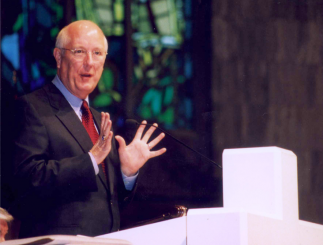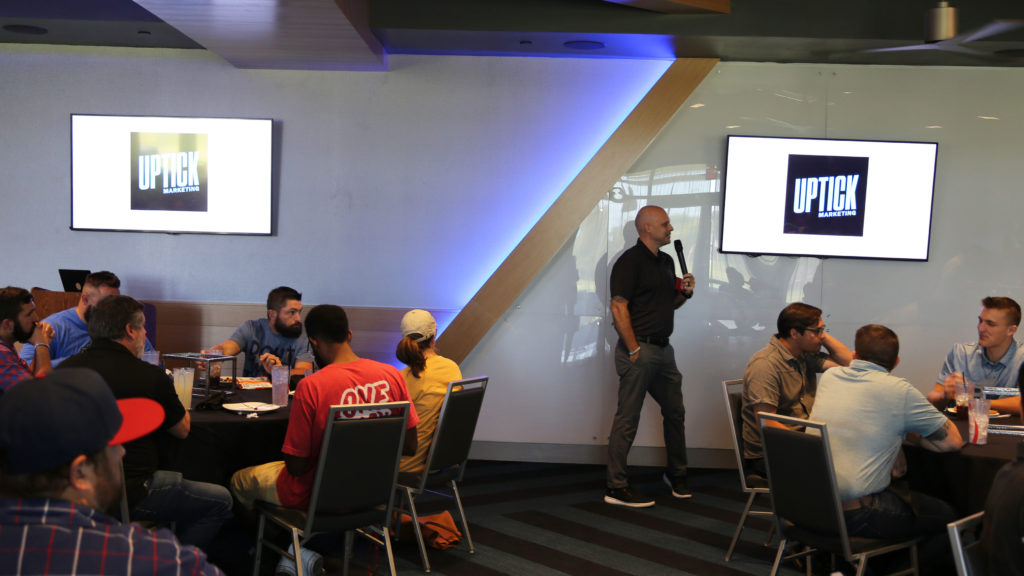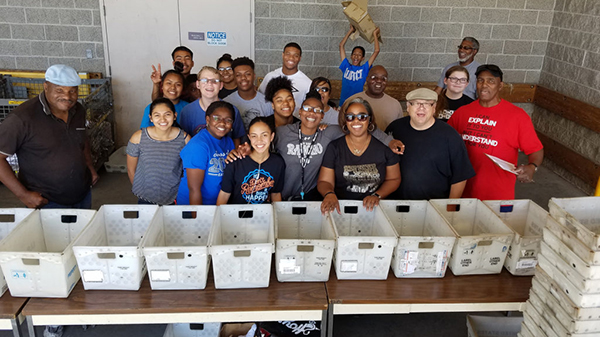Baby boomers are defined as those born between 1946 and 1964. As these adults who are now in their 50s and 60s move into their 70s and 80s, they face changes which could further define how they think and feel about themselves.
Each stage of life presents challenges to our sense of self that we must successfully meet in order to move into the next stage of life with a healthy identity. As baby boomers move into the second half of their lives, they must evaluate many areas of their lives, including their faith, relationships, health and legacy, and make appropriate changes in those areas in order to move forward with a healthy self-identity.
Living by faith
Some define successful living as the capacity to lead a life of meaning and purpose while meeting the challenges of each decade of life. For those of us who embrace the Christian faith, we find life’s meaning and purpose through our relationship with Jesus Christ. Faith manifests itself in service to God and others.
As we walk with Jesus through our relationship with Him over time, maturing faith will truly become, as the writer of Hebrews wrote, “the substance of things hoped for, the evidence of things not seen.” As we age, hopefully our focus has moved from, “what is God’s will for my life,” to, “what is God’s will and how does my life fit into His will?”
Baby boomers Dennis and Janet Dickey recently made the transition into retirement and have walked through this question and others firsthand. As a result they have encouraging words to share with those who are either preparing to be in that life stage or already are.
“Our retirement has been blessed with more time to travel on missions trips,” Janet Dickey said.
The Dickeys make sure they are intentional with their time in retirement, especially on things that have eternal significance.
Dennis Dickey said, “We have gone on two missions trips each year during our retirement. We [also] are making a Kingdom impact by participating in supporting missionaries in Peru and Swaziland.”
Maturing faith will not seek to trust God for certain outcomes, even “good” ones. Instead the sign of maturing faith is trusting God Himself.
Maturing faith leads to wisdom, which results in wise decision-making. Finding our meaning and purpose in Christ brings a sense of fulfillment that only comes from placing our faith in Him.
How we relate
As believers our relationships with others are an outgrowth of our relationship with Christ. A major factor in the way we form relationships is in how we related to our parents or caregivers in our earliest years. Those bonds greatly affect the way we become healthy, functioning adults.
Some of the specific relationships baby boomers may be navigating are with spouses, adult children, elderly parents, siblings, coworkers and friends.
Healthy relationships are built on the capacity to appropriately form emotional bonds with others and to communicate effectively. The ability to resolve conflict and solve problems allows for personal growth and relationship development. Deepening friendships and engaging in recreation through fun and play helps keep relationships strong.
Establishing and maintaining appropriate boundaries in relationships also is important. Healthy boundaries with work associates, friends, family members and church family are important to navigate in each life stage, especially in the areas of communication, conflict management and values.
Don’t underestimate your health
Pursuing good health helps combat the natural changes that occur in our bodies as we age. Changes in hormones, metabolism and muscle mass, for example, may be age-related, but we can make healthy lifestyle choices to counteract those losses.
It is never too early to make positive health changes, Dennis Dickey said.
“Do not ignore your health — it will pay off as you age,” he added.
Healthy eating, adequate and quality sleep, daily exercise, regular medical and dental checkups and healthy sexuality are ways to address the changes that come with physical aging. Overcoming unhealthy habits, such as smoking, drinking or eating to excess or participating in other addictive behaviors, will improve our quality of life and may even help us live longer.
Unfortunately some health problems occur regardless of our efforts to live healthy lifestyles. Disease may strike someone who has enjoyed good health in the past. Chronic conditions may worsen. What were minor health concerns may become much worse or require more frequent care.
Janet Dickey said, “Being understanding about your spouse dealing with changes in their health requires much prayer and talking to each other. Support for each other is important in making your retirement a joy and not a burden.”
Physical health is just one aspect of an individual’s overall health, however. A person’s mental and emotional health also must be nurtured as we age. Our mental and emotional health are enhanced when we learn to express our thoughts and emotions appropriately. As we get older, we learn that we are responsible for how we feel, think and respond and that others are responsible for the same. We learn resiliency or the capacity to “come back” from difficult situations.
When we view life as “continuing education” we will see each new experience as an opportunity to learn something new about ourselves and the world we live in.
Finances and legacy
As baby boomers shift from full-time employment to more flexible living, there will be many opportunities to participate in a wide range of purposeful activities. The choices can be overwhelming, which is why it is important to be intentional.
“Time management is an adjustment when you retire,” Janet said. “Retirement happiness depends on if you have prepared for it by having hobbies and, if you are married, spending time together as a couple doing the things you enjoy.”
Balancing meaningful work with times of leisure will allow boomers not only to manage their resources of time and money wisely but also to accomplish a sense of generativity — a concern for people besides self and family that allows an individual to nurture and guide younger people and contribute to the next generation.
For example the Dickeys make it a priority to spend time with their family. They usually try to babysit at least once a week so that they are able to have quality time with their grandchildren. Since retirement they also have had more time to invest in others spiritually.
Dennis Dickey said, “One of the most fulfilling things for us has been leading our Blended Family Sunday School class for the last 15 years.”
Such intentional choices will contribute to the legacy the couple leaves. Another intentional choice, creating a will, leaves a legacy of financial stewardship. Careful investing can make a big impact on the Kingdom in later years, Dennis Dickey said. Because of their financial planning, the Dickeys have been able to support missionaries across the world as well as support the church in many missions opportunities.
If you are a baby boomer and a Christian, you are facing a big question: What kind of legacy would you like to leave behind? As important as the various facets of our lives are, the most important aspect of finishing the race of life is our legacy. It’s never too late to create the kind of legacy you desire to leave. Begin thinking and evaluating now about your investments of time, resources and relationships.
Making the most of your days
Be intentional with all areas of your life, especially those activities that have eternal significance. Make a list of things you hope to accomplish in the coming years and start taking steps now so you can accomplish those things.
Ask yourself these questions:
- When people think of me, do they see Christ and the gospel?
- Do I want to go on a missions trip?
- Is there someone close to me who needs to hear the gospel?
- Do my children and other family members know how much I love and appreciate them?
Depending on your response to these questions, there may be small steps you can take today to establish a legacy of love and devotion to Christ that will remain long after you are gone.
Focus on making an eternal impact, the Dickeys said.
Janet Dickey said, “Invest in as many lives as possible to bring them to heaven with you. Spend time on what matters. One day it won’t be what you have but what you leave behind in memories and family support. Your Christian example will be what they remember.”
EDITOR’S NOTE — Renay Carroll is a licensed, professional counselor with Pathways Professional Counseling, a ministry of Alabama Baptist Children’s Homes & Family Ministries.
1. Learn to live in the present moment. Don’t focus on victories and defeats of the past or on anxieties about the future.
2. Revitalize your faith. Practice cleansing of sin through the Holy Spirit.
3. Practice the Christian disciplines of Bible study, prayer and service through a local church.
4. Perform a personal finance checkup. Revise your will as needed. Look at your insurance needs. Talk to a trusted adviser about your investments and savings.
5. Take an online class to learn a new hobby or improve your life skills in some area.
6. Clean out your garage and closets.
7. Network with others with similar interests. Don’t be afraid to make new friendships.






Share with others: